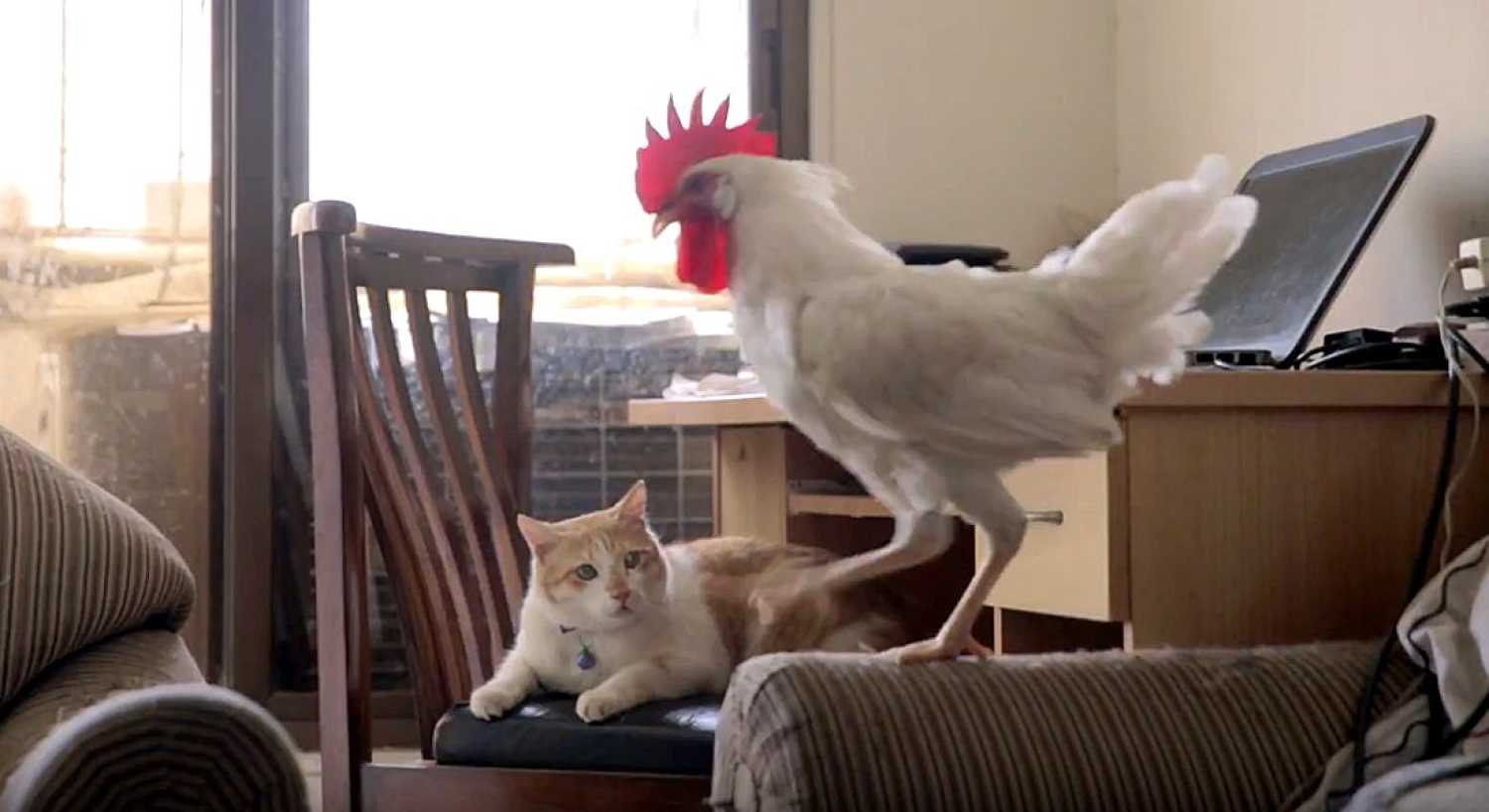Nusrat Bharde brought home the rooster — a newborn — one day and the decision hasn’t settled well with the family six months down the line.
Documentary Tungrus gives insight into a family's relationship with a rooster
Dharamshala - 12 Nov 2018 14:00 IST


Sahil Bhalla
Living in a cramped Mumbai suburb (Santacruz), first-time-filmmaker Rishi Chandna explores the lives of the families members surrounded by Ginger and Garlic, two pet cats, and an uncontrollable and unnamed rooster.
Nusrat Bharde brought home the rooster — a newborn — one day and the decision hasn’t settled well with the family six months down the line. Nusrat thought the Rs10 purchase would make for a toy for his cats. All this is captured in a delightful 14-minute comedic short documentary Tungrus. It’s an unusual housing situation, one you may have never heard of, with its caws and pecking.
Chandna decided to individually interview each member of the household and get an insight into their relationship with the rooster. It’s a nuisance to all, except Nusrat and the question is; should the rooster eventually be slaughtered and eaten?
It’s a tough situation to be in for all the household members. They all begin to like and tolerate the rooster but simultaneously would like him out of the house as he has become the bully. This documentary offered them some closure. It was cathartic talking about the rooster for them.
They all are adamant on not consuming the rooster except for the father. The documentary has its fair share of laughs and family dynamics and most of all, the unusual human-animal relationship. It captures a single week in the life of the Bharde family.
As soon as he heard about the situation, through a common friend and not on the news, he knew this would make for a compelling story. The absolutely bizarre scenario lends itself to some hilarious moments such as when the hell-raising rooster scares away the cats and eats up their food. There is also a shot where the rooster just does nothing but watch TV. These unusual moments are just a couple of the multitude of scenarios we get to witness the rooster in.
Instead of just the camera following the rooster around the house, interspersed with interviews from the household members, Chandna and cinematographer Deepak Nambiar capture the rooster disrupting the peaceful nature of the house.
While the father, with his rural upbringing, is no stranger to raising a pet that is later slaughtered for its meat, it is the children that offer a contrasting view. The children, with their urban upbringing, cannot bring themselves to imagine a pet being consumed, even though they are non-vegetarians.
It’s a rural tale told in an urban setting. It’s a story that no aspiring filmmaker would have passed up. Chandna heard about the Bharde family from co-producer Ritika Ranjan. Ranjan is a friend of the younger son Sameer. The film, shot over four days, makes for an exciting watch. The cramped spaces of the apartment proved a blessing in disguise for the three-person crew.
Chandna’s directorial debut has made it to a number of festivals and its latest screening at the Dharamshala Film Festival goes to show why this documentary is a hit. It’s a comedy, mixed conflict, at its best.
With the backdrop of the Bharatiya Janata Party telling the citizens what they can and cannot eat, this is a personal tale of a father and the rooster he is adamant on eating.
One hopes that the documentary appears on a streaming platform shortly. It’s short and one which could delight viewers over and over again.
Related topics
Dharamshala International Film Festival
